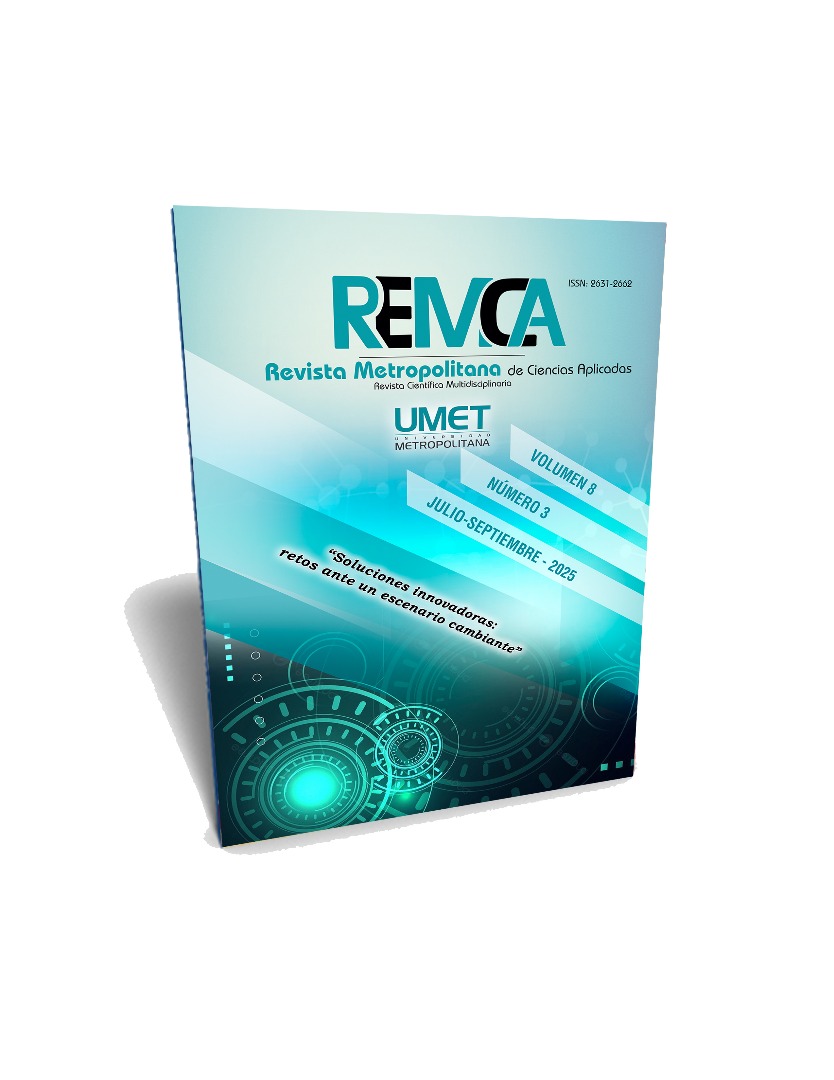The impact of Information and Communication Technologies on the evolution of education
DOI:
https://doi.org/10.62452/ecff3k38Keywords:
ICT, digital divide, online education, pedagogical innovation, pandemicAbstract
The role of Information and Communication Technologies (ICT) in education has marked a before and after in the way we teach and learn. Their integration has widened access to knowledge, but it has also brought to light persistent challenges, such as the digital divide or resistance to change on the part of teachers. During the pandemic, tools such as Zoom and Moodle became fundamental resources: 90% of teachers and 88% of students surveyed said they had used them, although their effectiveness continues to depend on pedagogical training. At the regional level, inequalities persist in Latin America, 62% report difficulties in accessing the Internet, compared to 15% in Europe (p<0.001). Innovations such as adaptive artificial intelligence (evaluated with 4.2/5 in retention), virtual reality (4.7/5 in motivation) and gamification show encouraging results, although their widespread adoption faces economic and structural limitations. Cases analyzed reveal that teacher training can increase student satisfaction by up to 30%, as evidenced at the State Technical University of Quevedo. However, in rural areas, such as one African school studied, only 20% of students were able to access online education. ICTs also drive global collaboration through MOOCs, although risks such as misinformation or the commercialization of learning persist. For its implementation to be truly transformative, inclusive policies, investment in technological infrastructure and student-centered pedagogical approaches are required.
Downloads
References
Area Moreira, M., Hernández Rivero, V., & Sosa-Alonso, J. J. (2016). Modelos de integración didáctica de las TIC en el aula. Comunicar: Revista Científica Iberoamericana de Comunicación y Educación, 24(47), 79-87. https://www.revistacomunicar.com/pdf/47/c4708es.pdf
Batallán, G., Anderson, G., & Suárez, D. H. (2022). Hacia la democratización del conocimiento. El giro participativo en la investigación y en la acción pedagógica. Estudios de resistencia afirmativa en educación. Editorial de la Facultad de Filosofía y Letras Universidad de Buenos Aires.
Bates, A. W. (2019). Teaching in a digital age: Guidelines for teaching and learning. Tony Bates Associates Ltd.
Bozkurt, A., Jung, I., Xiao, J., Vladimirschi, V., Schuwer, R., Egorov, G., ... & Paskevicius, M. (2020). A global outlook to the interruption of education due to COVID-19 pandemic: Navigating in a time of uncertainty and crisis. Asian journal of distance education, 15(1), 1-126. https://discovery.ucl.ac.uk/id/eprint/10101679/
Cisneros Vásquez, E., Nevárez Loza, R., Farez Cherrez, A., & Torres Montes, R. (2024). Uso de la inteligencia artificial en la personalización del aprendizaje. Conocimiento Global, 9(1), 75-83. https://doi.org/10.70165/cglobal.v9i1.339
Dicheva, D., Dichev, C., Agre, G., & Angelova, G. (2015). Gamification in education: A systematic mapping study. Journal of Educational Technology & Society, 18(3), 75-88. https://www.jstor.org/stable/jeductechsoci.18.3.75
Ertmer, P. A., & Ottenbreit-Leftwich, A. T. (2010). Teacher technology change: How knowledge, confidence, beliefs, and culture intersect. Journal of research on Technology in Education, 42(3), 255-284. https://files.eric.ed.gov/fulltext/EJ882506.pdf
Fuchs, C. (2021). The digital commons and the digital public sphere: How to advance digital democracy today. Westminster Papers in Communication and Culture, 16(1). https://www.westminsterpapers.org/article/id/917/
Hodges, C., Moore, S., Lockee, B., Trust, T., & Bond, A. (2020). The difference between emergency remote teaching and online learning. Educause Review, 27(1), 1-9. https://er.educause.edu/articles/2020/3/the-difference-between-emergency-remote-teaching-and-online-learning
Luckin, R. (2018). Machine Learning and Human Intelligence. The future of education for the 21st century. UCL Institute of Education Press.
Lythreatis, S., Singh, S. K., & El-Kassar, A. N. (2022). The digital divide: A review and future research agenda. Technological Forecasting and Social Change, 175. https://www.sciencedirect.com/science/article/abs/pii/S0040162521007903
Organización de las Naciones Unidas para la Educación, la Ciencia y la Cultura. (2020). Education in a post-COVID world: Nine ideas for public action. International Commission on the Futures of Education. https://www.unesco.org/en/futures-education
Oviedo-Bayas, B., & Espinoza-Oviedo, J. (2025). Estrategias pedagógicas innovadoras para el desarrollo socioemocional en la educación inicial. Revista Metropolitana De Ciencias Aplicadas, 8(1), 240-245. https://doi.org/10.62452/gvp3ew49
Selwyn, N. (2019). Should robots replace teachers?: AI and the future of education. John Wiley & Sons.
Tarango Ortiz, J., González Quiñones, F., & Machín-Mastromatteo, J. D. (2021). Generación y uso inadecuado de información en ámbitos académicos y su influencia en entornos sociales: Desinformación, sobreinformación y misinformación. https://ru.iibi.unam.mx/jspui/bitstream/IIBI_UNAM/138/1/13_informacion_desinformacion_javier_tarango_fidel_gonz%c3%a1lez_qui%c3%b1ones_juan_machin_mastromatteo.pdf
Downloads
Published
Issue
Section
License
Copyright (c) 2025 Byron Oviedo-Bayas, Joseph Espinoza-Oviedo, Omar Oviedo-Armijos (Autor/a)

This work is licensed under a Creative Commons Attribution-NonCommercial-ShareAlike 4.0 International License.
Authors who publish in Revista Metropolitana de Ciencias Aplicadas (REMCA), agree to the following terms:
1. Copyright
Authors retain unrestricted copyright to their work. Authors grant the journal the right of first publication. To this end, they assign the journal non-exclusive exploitation rights (reproduction, distribution, public communication, and transformation). Authors may enter into additional agreements for the non-exclusive distribution of the version of the work published in the journal, provided that acknowledgment of its initial publication in this journal is given.
© The authors.
2. License
The articles are published in the journal under the Creative Commons Attribution-NonCommercial-ShareAlike 4.0 International License (CC BY-NC-SA 4.0). The terms can be found at: https://creativecommons.org/licenses/by-nc-sa/4.0/deed.en
This license allows:
- Sharing: Copying and redistributing the material in any medium or format.
- Adapting: Remixing, transforming, and building upon the material.
Under the following terms:
- Attribution: You must give appropriate credit, provide a link to the license, and indicate if any changes were made. You may do this in any reasonable manner, but not in any way that suggests the licensor endorses or sponsors your use.
- NonCommercial: You may not use the material for commercial purposes.
- ShareAlike: If you remix, transform, or build upon the material, you must distribute your creation under the same license as the original work.
There are no additional restrictions. You may not apply legal terms or technological measures that legally restrict others from doing anything the license permits.




